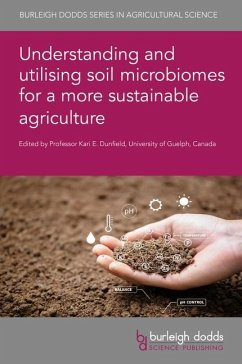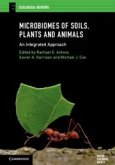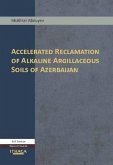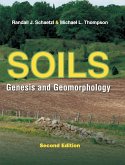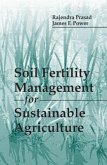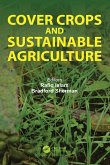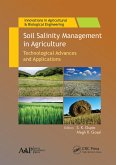"Components of environmental systems are intrinsically linked through microbiomes that connect water, soils, plants and animals. Interconnectivity mediated by microorganisms is central to an emerging concept of 'a one systems health', where all components of a system interactively depend on each other, with implication and relevance to all aspects of human health. This volume, edited by Professor Kari Dunfield - a renowned soil biologist - brings together a series of quality reviews that explore the structural and functional relevance of microbiomes across agricultural systems and their associated contribution to ecosystem services. Indeed this is both a timely and relevant 'must read' publication from experts in the field to inform and educate scientists, students, policymakers and the wider interested community alike." (Dr Alan Richardson, CSIRO Agriculture & Food, Microbiomes for One Systems Health - Future Science Platform, Australia) Microbiomes are communities of microorganisms living in soil and other habitats. In recent years, a new wave of research into understanding soil microbiomes has emerged, with stakeholders across the supply chain recognising the fundamental importance of these communities in optimising both crop and soil health. Despite these advancements, many soil microorganisms and their ecological functions remain only partially understood. Understanding and utilising soil microbiomes for a more sustainable agriculture summarises the wealth of recent research in this important area. It reviews advances in techniques for analysing soil microorganisms, the composition and dynamics of soil microbial communities, the ecosystem services they support and how they can be enhanced. In its comprehensive exploration of this exciting subject area, the book highlights the role of soil microbiomes in delivering key ecosystem services and how supporting these wonderful communities can achieve a more sustainable and regenerative agriculture. Edited by a leading expert in the field, Understanding and utilising soil microbiomes for a more sustainable agriculture will be a standard reference for researchers in soil and crop science, governments and other agencies supporting the transition to a more sustainable agriculture, as well as agricultural ecologists and agronomists wishing to further their knowledge on the latest developments in understanding soil microbiomes. Dr Kari E. Dunfield is a Professor and Tier 2 Canada Research Chair in Environmental Microbiology of Agro-ecosystems in the School of Environmental Sciences at the University of Guelph, Canada. Working at the intersection of microbiology, ecology, and soil science, her work investigates the microbial communities and microbial processes driving the global processes that help support life on Earth. She is the North American Representative for the UN-FAO Global Soil Partnership (Pillar 1). Dr Dunfield is currently the Co-Editor-in-Chief of the Canadian Journal of Microbiology.

